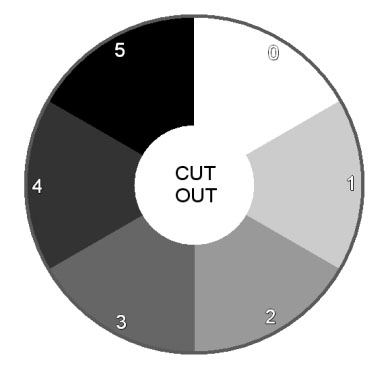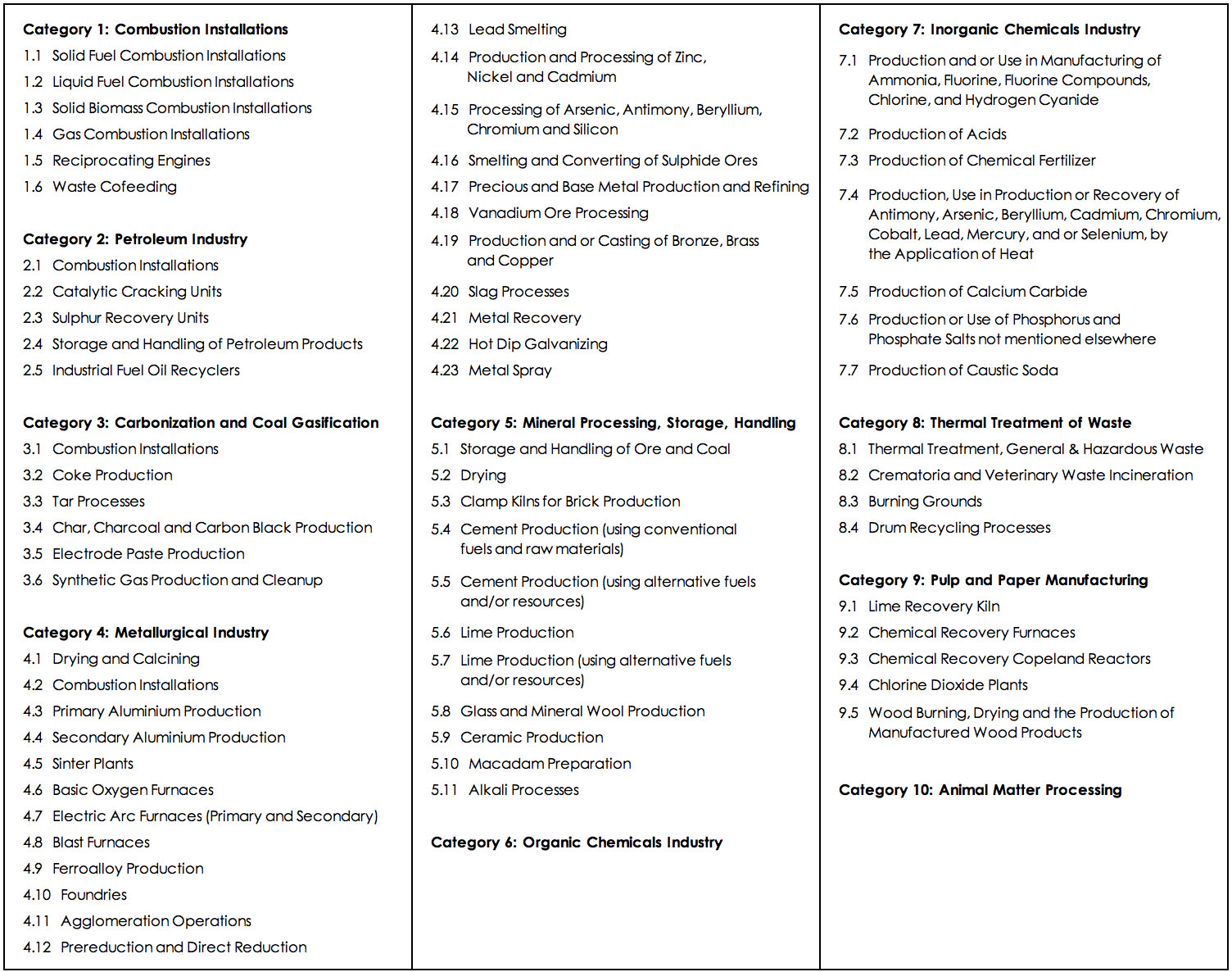eThekwini Air Quality Management By-law
(Municipal Notice 63 of 2020)
The eThekwini Air Quality Management By-law was published on the 13th of August 2020 and will take effect six months from this date, on the 13th of February 2020, unless a commencement notice for an earlier date is published.
Section 6 of the By-law requires that reasonable measures be taken to prevent air pollution and empowers the municipality to issue directives. If a company or a person does not comply with the directives, the municipality may intervene and recover the costs of the intervention from the offending company or person.
Section 7 permits the municipality to set air emissions limits for stacks, vehicles or ambient air pollution. If the municipality does so, this will be communicated in the Provincial Gazette. There are no emissions limits in the eThekwini Air Quality Management By-law at present.
Section 10 declares the whole eThekwini area as an Air Pollution Control Zone. This means that the municipality can prohibit or restrict the emission of certain pollutants, prohibit or restrict the combustion of certain types of fuels and declare smokeless zones. Smokeless zones are defined as zones in which smoke with an obscuration of more than 10 % is not permitted. The municipality may also publish guidelines and policies regulating activities that are causing air pollution in the zone.
Section 12 prohibits the emission of “dark smoke” from premises other than dwellings (besides the allowances for dark smoke in NEMAQA). Dark smoke is defined as smoke which has an obscuration of 20 % or more. This is measured using a light absorption or light obscuration meter. If dark smoke is emitted for a period that is longer than determined in NEMAQA, the municipality may order the owner to cease operation of the fuel-burning equipment. The owner or operator of fuel-burning equipment must keep a record of all incidents where smoke of a shade darker than Ringelmann No. 2 was emitted:

Ringelmann Chart. Cut out hole and hold at arm’s length. 1 = 20% obscurity. 5 = 100% obscurity.
Section 13 declares it an offense to drive a vehicle that emits smoke with an obscuration of greater than 20% on public roads.
Section 14 states that no person may operate fuel-burning equipment without obtaining written permission from the municipality and without paying the prescribed application fee. If this is not done, the municipality may order the fuel-burning equipment to be removed at the expense of the owner and impose a fine of R 10 000. The municipality may also remedy the harm that was caused by the fuel-burning equipment and may recover these costs from the owner. Fuel burning equipment must comply with any emissions standards that are issued by the municipality, and the municipality may require atmospheric emissions reports to be written and submitted to the municipality for boilers.
As per section 15, the municipality may order the installation of obscuration measuring equipment if dark smoke has unlawfully been emitted from a premises, or if the municipality considers the nature of the air pollutants that are emitted to be a hazard to human health and the environment.
Section 17 requires all owners or operators of fuel-burning equipment to immediately register on the National Atmospheric Emission Inventory System (NAEIS) – regardless of whether that equipment is classified as a Listed Activity or Controlled Emitter in terms of NEMAQA. The total mass of each pollutant that is released (not the concentrations of these pollutants) needs to be reported annually on NAEIS. Furthermore, section 28 requires any person that is conducting an activity that is listed in Schedule A of the By-law (beneath), or any person operating an activity that is defined as a Listed Activity as per NEMAQA (even if operating below the threshold that is stated), to register and report on NAEIS. Please contact Yellow Tree if you require help understanding whether your activity is classified or not.
Schedule A from the By-law

Listed Activities

In terms of section 17, every year owners or operators of fuel-burning equipment must submit a calculated stack emissions report, provide maintenance plans for the fuel-burning equipment and provide records of ash management and disposal to the municipality. The first emissions report must be submitted within 12 months of the publication of this By-law, i.e. by the 13th of August 2021.
According to Mr. Bruce Dale, the Senior Manager for Pollution Control at the eThekwini Municipality, the annual stack emissions report for small fuel burning appliances (provided that they do not create a nuisance), may be based on calculations that use emissions factors. Verification of these calculations by actual stack testing will only be required once every five years. As per NEMAQA, larger fuel burning appliances will need to undergo annual emissions testing notwithstanding this By-law. A complaints register must be kept by the owner or operator, and must be available for inspection by the municipality.
Section 19 pertains to the emission of dark smoke from dwellings. Dwellings are defined as places of residence but exclude informal settlements. No one may emit dark smoke (> 20 % obscuration) from a dwelling if it causes a nuisance or harm.
Section 20 concerns the open burning of materials, and notes that application must be made to the municipality if open burning is to be conducted. Section 21 prohibits the burning of tyres, rubber and other materials for the recovery of metals. Section 22 requires a person who conducts an activity which results in dust emissions to prevent and abate the dust. Section 23 limits the burning of sugarcane to certain hours and weather conditions. Section 24 prohibits emissions that cause a nuisance from spray areas, spray booths, sand blasting, shot blasting, grinding, finishing, etc.
Section 25 permits abatement notices to be served. If these are not complied with, the municipality may intervene to remedy any harm caused and may recover costs of the intervention in terms of section 26. The contravention of any provision of the By-law is an offence, as per section 27. So too is failure to comply with notices of the By-law; obstructing or hindering an official who is acting in terms of the By-law; furnishing false information pertaining to the By-law; or failing to obey a lawful order given in terms of the By-law.
Any person who commits an offence is liable for a fine of up to R300 000 and/or a period of imprisonment. In the case of a continuing offence, the offender is liable for an additional fine of up to R 5,000 per day of the continued offence and/or additional imprisonment of up to 10 days per continued day of the offence.
Furthermore, offenders may be ordered to remedy any harm caused, pay damages for harm caused to another person or property, and install and operate equipment to mitigate the adverse effect of air emissions.In terms of section 29, a person may apply for exemption from any provision in the By-law, but the application must be accompanied by substantive reasons for the exemption. Lastly, the By-law details the appeals process for any person whose rights are affected by a decision made in terms of this By-law.
What does this mean for you?
1. You need to immediately register on NAEIS if you are located in the eThekwini Municipality and if:
a. You are listed on schedule A above,
b. Your activity is named on the list of listed activities, even if you are below the threshold,
c. You operate fuel burning equipment of any size.
2. You need to submit an annual emissions report (based on emissions factors) to the Municipality.
3. You need to submit an annual maintenance plan for your fuel burning equipment to the Municipality.
4. You need to provide records of ash disposal to the municipality.
5. Should air emissions standards be imposed in the future, you need to comply with these limits.
6. You need to keep a register of complaints.
7. You need to take reasonable measures to prevent polluting the air.
Please feel free to contact Yellow Tree should you wish to learn more about how we can support you with these responsibilities.
Author: Caitlin Morris
Cait is a BSc Chemical Engineer who has obtained excellent marks for her Masters in Environmental Law at UCT. She has extensive knowledge of the legislation and is passionate about serving the environment, reducing air pollution and helping companies become compliant.

